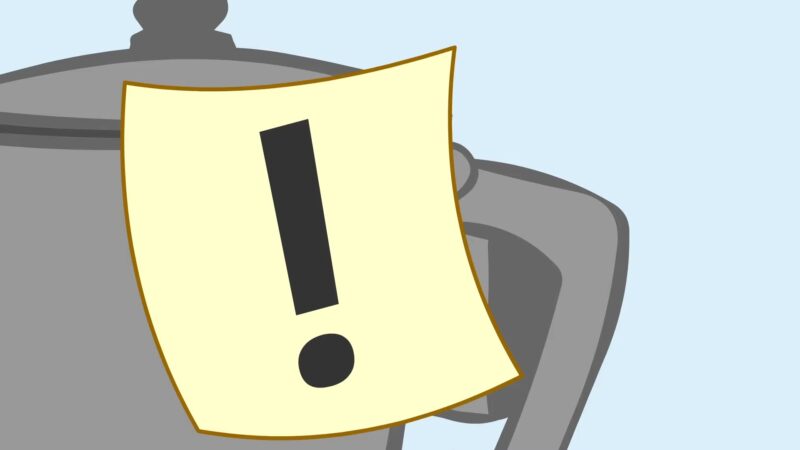In the vast world of finance, the term “loan” is a common one. However, not all loans are created equal.
Among the myriad of loan types available, installment loans for bad credit stand out as a unique and often misunderstood option. This article aims to shed light on this topic, providing clarity for those who might be considering such a loan.
The Basics
An installment loan is a financial instrument that allows individuals to borrow a specific amount of money, typically from a financial institution like a bank or credit union. This borrowed amount is then repaid over a predetermined period, in consistent payments.
Let’s explore its characteristics:
- Lump Sum Disbursement: Unlike revolving credit, where you can borrow up to a limit as and when you need, an installment loan provides the borrower with a one-time lump sum at the beginning of the loan term.
- Fixed Payments: The payments, often monthly, are fixed, meaning they remain the same throughout the loan term. This predictability can be beneficial for budgeting and financial planning.
- Components of the Payment: Each payment made towards the loan typically consists of two main components: the principal and the interest. The principal is the original amount borrowed, while the interest is the cost of borrowing that amount. Over time, a larger portion of your payment goes towards the principal, reducing the loan’s balance.
- Loan Term: Installment loans can vary in length, from short-term loans (like payday loans) that last a few weeks to long-term loans (like mortgages) that can last 30 years or more.
Bad Credit

The term “bad credit” is often thrown around in financial circles, but what does it truly signify? Let’s break it down:
- Credit Score: At the heart of the term “bad credit” is the credit score, a numerical representation of a person’s creditworthiness. This score is calculated based on an individual’s credit history and ranges typically from 300 to 850. A higher score indicates better creditworthiness.
- Factors Affecting Credit: Several factors can negatively impact one’s credit score. These include:
- Late Payments: Consistently paying bills or debts late can significantly harm one’s credit score.
- Defaults: Failing to repay a loan or debt can lead to a default, which remains on the credit report for several years.
- Bankruptcy: Declaring bankruptcy is a severe financial step and can drastically lower one’s credit score.
- High Utilization: Maxing out credit cards or using a high percentage of available credit can also negatively affect the score.
- Consequences of Bad Credit: Having a low credit score or limited credit history can have several repercussions:
- Loan Approval: Traditional lenders, like banks, may be hesitant to approve loans for individuals with bad credit due to the higher risk associated.
- Higher Interest Rates: If approved, the loan might come with a higher interest rate, translating to higher overall costs.
- Difficulty in Securing Housing: Landlords might conduct credit checks, and a bad score can hinder one’s ability to rent an apartment or house.
- Job Opportunities: Some employers consider credit history in their hiring process, especially for positions related to finance or handling money.
Understanding the intricacies of installment loans and the implications of bad credit can empower individuals to make informed financial decisions and work towards improving their financial health.
Features of Installment Loans for Bad Credit

- Higher Interest Rates: Due to the perceived risk associated with lending to individuals with bad credit, these loans often come with higher interest rates compared to standard installment loans.
- Shorter Loan Terms: The duration for repayment might be shorter, meaning the borrower has less time to repay the loan.
- Smaller Loan Amounts: Lenders might be hesitant to lend large sums to individuals with bad credit, resulting in smaller loan amounts.
- Secured vs. Unsecured: Some of these loans might require collateral (secured), while others might not (unsecured). Collateral can be an asset like a car or home that the lender can seize if the borrower fails to repay.
Why opt for an Installment Loan with Bad Credit?
- Accessibility: For those with bad credit, these loans might be one of the few accessible financing options.
- Fixed Payments: The regular, fixed payments can make budgeting easier as borrowers know exactly how much they owe each month.
- Improving Credit Score: If managed responsibly, such a loan can help improve one’s credit score. Timely payments can reflect positively on a credit report.
The Application Process
- Documentation: Lenders typically require proof of income, identity, and residence. This can include pay stubs, government-issued IDs, and utility bills.
- Online vs. In-Person: While many lenders offer online applications, some might require an in-person visit.
- Approval Time: Depending on the lender, approval can be instantaneous or might take a few days.
Risks and Precautions

- Higher Costs: As mentioned, the interest rates can be higher, leading to more significant overall repayment amounts.
- Potential for Debt Traps: If not managed wisely, borrowers can find themselves in a cycle of debt, taking out additional loans to repay previous ones.
- Research Lenders: Not all lenders are created equal. It’s crucial to research and choose reputable lenders to avoid scams or predatory lending practices.
Alternatives to Consider
- Personal Loans: Some lenders offer personal loans specifically designed for those with bad credit.
- Credit Unions: These member-owned institutions often provide loans with more favorable terms.
- Peer-to-Peer Lending: Platforms like these connect borrowers directly with individual lenders, potentially offering better rates.
FAQs
What exactly is an installment loan for bad credit?
An installment loan for bad credit is a specific type of loan tailored for individuals with a low credit score or limited credit history. Borrowers receive a lump sum and agree to repay it in fixed, regular payments over a set period. These loans often come with higher interest rates due to the perceived risk associated with lending to those with bad credit.
How does bad credit affect the terms of my installment loan?
Bad credit can influence several aspects of your loan terms. Typically, you might face higher interest rates, shorter repayment durations, and smaller loan amounts. Some lenders might also require collateral or a co-signer to approve the loan.
Can taking out an installment loan improve my credit score?
Yes, if managed responsibly. Making timely payments on your installment loan can have a positive impact on your credit history. Each on-time payment can reflect favorably on your credit report, potentially boosting your credit score over time.
Are there any alternatives to installment loans for individuals with bad credit?
Absolutely! Alternatives include personal loans designed for bad credit, borrowing from credit unions (which often have more lenient lending criteria), and exploring peer-to-peer lending platforms that connect borrowers directly with individual lenders.
What should I be cautious of when considering an installment loan with bad credit?
It’s essential to be wary of extremely high interest rates, hidden fees, and potential scams. Always research lenders thoroughly, read the loan agreement carefully, and consider seeking advice from financial professionals or counselors.
If I’ve previously declared bankruptcy, can I still qualify for an installment loan for bad credit?
It’s possible, but it might be more challenging. While bankruptcy will significantly impact your credit score, some lenders specialize in offering loans to individuals with past bankruptcies. However, the terms might be less favorable, and higher interest rates are likely.
Conclusion
Installment loans for bad credit offer a financial lifeline for those with less-than-perfect credit scores. While they come with their set of challenges, they can be a viable solution when managed responsibly.
As with any financial decision, it’s essential to do thorough research, understand the terms, and ensure timely repayments to make the most of this loan type.
